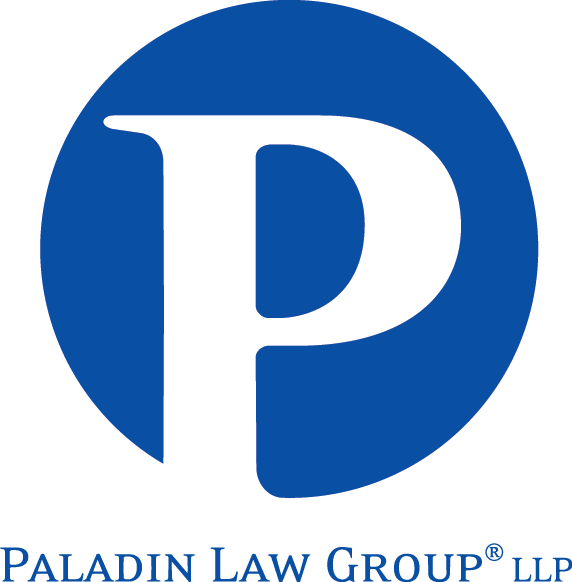Dr. Bronner’s sees lawsuit as defence against ‘organic’ label
- November 10, 2009
- Paladin Law Group® LLP
- News
- 0 Comments
By Joysa Winter, Functional Ingredients
In April 2007, Dr Bronner’s Magic Soaps filed a lawsuit in California Superior Court, under the state’s unfair-competition law, against numerous personal-care brands using ‘organic’ claims on their labels. Other defendants in the suit are Ecocert, a French-based private certifier of organic personal-care products, as well as OASIS, an industry-driven standard in the US that launched in March 2008.
According to Bronner’s legal team, OASIS sought to have the lawsuit dismissed on free-speech grounds. Turned down by the court, OASIS appealed the ruling and the appeal is pending in the state Court of Appeals.
Dr Bronner’s had to refile against the personal-care manufacturers and Ecocert “for technical legal reasons,” which it did in July, under the federal false-advertising law (the Lanham Act). The defendants transferred the case to US District Court in San Jose, where it is currently pending.
Fi had a chat recently with David Bronner, CEO of Dr Bronner’s Magic Soaps. Bronner is a grandson of the founder of the company, Emil Bronner, who began the company from German-family soap recipes.
Fi: What do you think is the best solution for the problem of inconsistent standards for personal-care products with ‘organic’ labels?
DB: The USDA’s National Organic Program invited personal-care manufacturers to certify to NOP standards upon the launch of the program in 2002. Dr Bronner’s followed other major companies in obtaining NOP certification in 2003. Dr Bronner’s is in agreement with the recent recommendation set forth in the Discussion Document ‘Solving the Problem of Mislabeled Organic Cosmetics & Personal Care Products,’ from March 2009, which was prepared by the Accreditation and Compliance Committee of the National Organic Standard Board (NOSB).
That recommendation, which will be presented to the NOSB for its public meeting this fall for formal adoption, is to make the NOP standards mandatory – not simply voluntary – for personal-care products that make organic claims.
Real organic personal care does not utilize synthetic preservatives that can irritate skin. Natural unrefined oils and waxes are used as emollients and moisturizers, instead of hydrogenated oils and synthetic silicones. Traditional natural simple soaps are used in hand and body washes, instead of modern synthetic surfactants usually made in part with petrochemicals.
Fi: What is your take on the non-NOP efforts to certify organic personal-care products?
DB: Because the NOP is a voluntary program for personal care, the cosmetics industry is rapidly developing private organic-industry standards free of meaningful organic-consumer participation, each more permissive than the next in synthetic processing and preservative allowances, and organic-content requirements. Some are better, most are worse, but together they enable the unregulated Wild West situation to continue. We are witnessing the downward spiral of the ‘organic’ label into the same meaningless marketing babble as ‘natural’ – devoid of the integrity that only federal regulation by NOP can ensure.
Fi: Do you think personal-care products will continue to seek NOP certification?
DB: Yes. By late 2009 and 2010, will see significant new NOP lines introduced, including AVEDA founder Horst Rechelbacher’s new NOP brand, Intelligent Nutrients. More and more cosmetics products are being developed within the rigorous constraints of the NOP to perform as well as modern synthetic variants. This sustainable innovation should be supported and defended in the face of the mainstream cosmetics industry’s knee-jerk ‘better-living-through-chemistry’ mantra.
Fi: Is there room for other types of certifications outside the NOP?
DB: It depends. Over the past five years, Dr Bronner’s has participated in efforts to establish additional allowances appropriate and specific to ‘contains organic’ in personal care for the NSF/ANSI 305 standard. The NSF process was worked on, reviewed and voted on by a diverse stakeholder group, including representatives from the Organic Trade Association, the Organic Consumers Association and Whole Foods, as well as various certifiers and a number of companies, including Aveda/Estee Lauder, Avalon, Jason Natural Cosmetics, Aubrey Organics and Dr. Bronner’s.
The NSF Personal Care Group voted that personal-care products should be allowed to be labelled as ‘organic’ only if they meet the existing NOP organic standards, and that a new NSF/ANSI standard should be promulgated only for personal-care products to be labelled as ‘Contains Organic Ingredients.’
We are adamantly opposed to industry interests and private-industry standards that seek to permit these process and synthetic allowances for products labelled outright as ‘organic.’
Fi: Why do you support the NSF/ANSI 305 standard but not the OASIS standard?
DB: We are not opposed to process and preservative allowances in ‘Contains Organic’ personal care, but hydrogenated, sulfated and synthetically preserved products should not be called ‘organic’ outright. For example, ‘shampoo made with organic aloe vera’ is acceptable but ‘organic shampoo’ is not if the shampoo is based on sodium lauryl sulfate with some organic aloe vera floating on top. This is the basic difference between OASIS vs NSF/ANSI. The actual substantive allowances are pretty much identical, but their use of the term ‘organic’ in labelling is not.
Fi: Who are you targeting in your lawsuit?
DB: Our lawsuit is primarily against brands such as Jason Pure Natural & Organic, which doesn’t comply with any standard whatsoever. And then, secondarily, it is against permissive industry standards written with no organic-consumer involvement, that certify products as ‘organic’ when their main cleansing and moisturizing ingredients are made from nonorganic materials, and they are sulfated, hydrogenated and synthetically preserved.
Fi: OASIS believes that their certification standard is permissible under the First Amendment. What is your reaction?
DB: The First Amendment does not apply to commercial speech such as product labelling and standards. For example, a company cannot label something as ‘orange juice’ that is actually artificial orange-flavoured water. OASIS is making a very weak argument.
(read online version)

Leave a Reply
You must be logged in to post a comment.